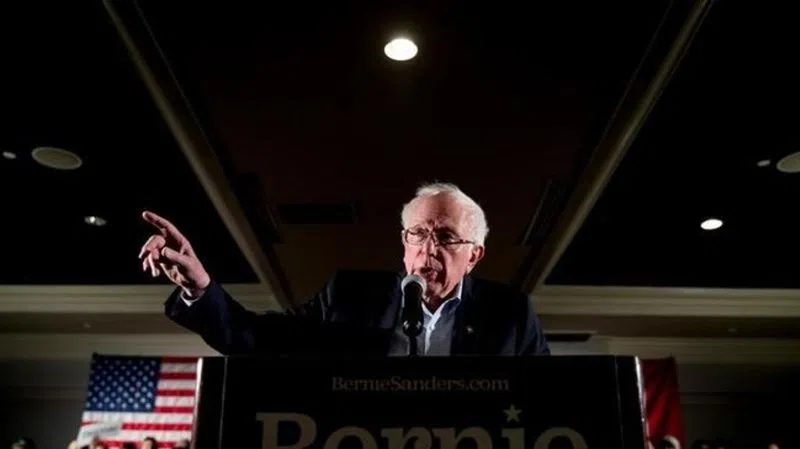
Trump sets sights on Sanders on eve of Democratic debate in Des Moines
WASHINGTON — Bernie Sanders, the gesticulating, septuagenarian senator with the fixation on Canada’s universal health-care system, seems to have caught the attention of Democrats in Iowa — as well as a certain U.S. president.
This past weekend had barely begun when, just three weeks out from next month’s Iowa caucuses, a coveted poll placed Sanders, 78, atop the Democratic field, a significant improvement for the self-proclaimed socialist from Vermont over his third-place showing in the same poll in November.
It didn’t take long for Donald Trump to notice.
“Wow! Crazy Bernie Sanders is surging in the polls, looking very good against his opponents in the Do Nothing Party,” Trump tweeted Sunday. “So what does this all mean? Stay tuned!”
